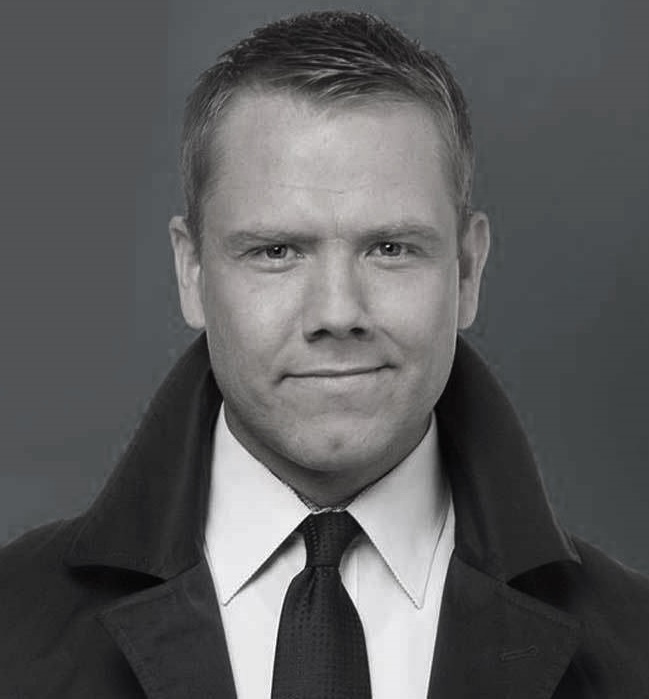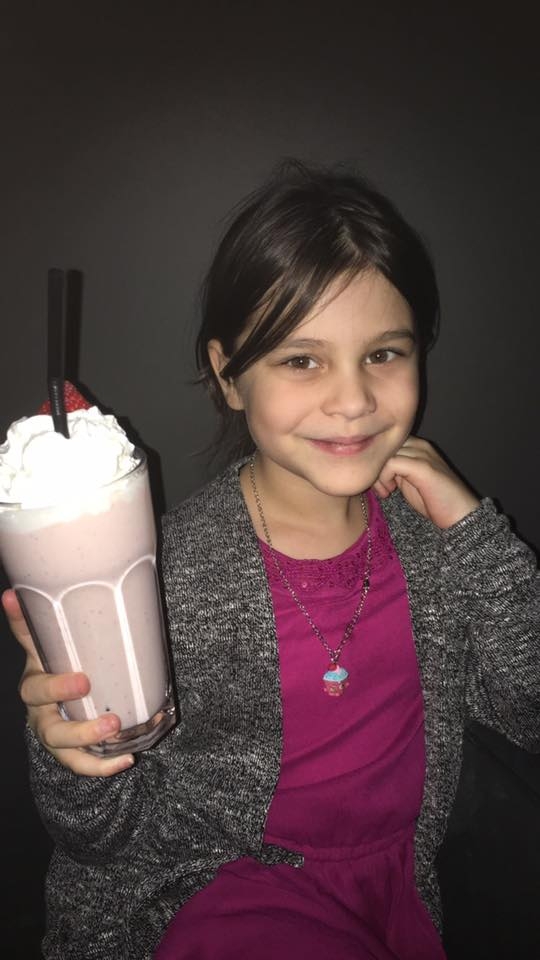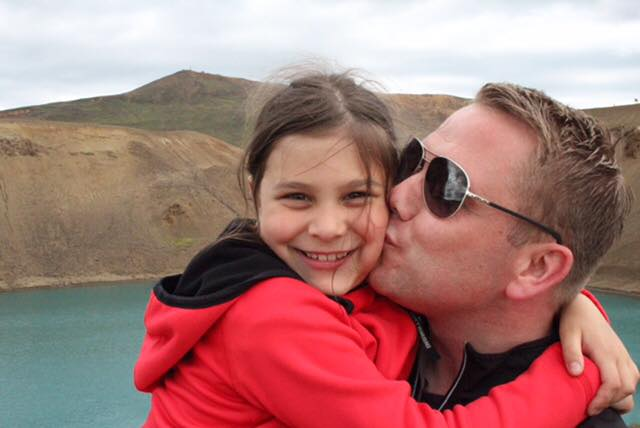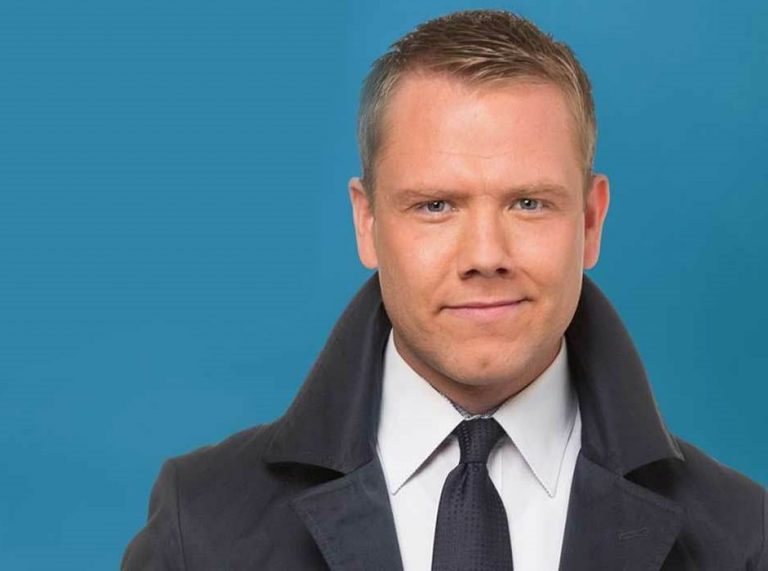Proud dad and TV presenter Sindri Sindrason talks exclusively to GayIceland about how the urge for having a child led him to becoming a foster parent.

“We received a phone call saying there was this little girl, three and a half years, who needed fostering. And that she had been at a care home over Christmas, which made us feel terribly guilty and we instantly regretted having gone on that holiday.” Sindri Sindrason, news anchor and TV presenter, recalls the day he and his husband Albert learnt of the existence of their daughter Emilía. The couple had applied to become foster parents in early 2011 and gone through the roller coaster process that comes with it when they were accepted shortly before Christmas the same year.
“By then, my extended family were all going to Orlando for a few weeks and I asked at the agency whether we should perhaps cancel our trip. We were told no, that things rarely happened that quickly, so off we went. But then they were actually waiting for us to return so that they could ask us to foster Emilía.”
“I actually think – and I noticed that when researching for the TV series – that mothers find it somehow easier to cope with if a gay couple fosters or adopts their child.”
Sindri and his husband had desperately wanted to start a family and Sindri is very candid about how badly he wanted it. “I would have found a way, no matter what, in Iceland or abroad. I just had an urge to have a child.” One of the resources he thought of was to become a foster parent through the Government Agency for Child Protection. He knew that there was need for foster parents to look after children temporarily, but that sometimes it would lead to a permanent foster care. Very seldom, however, would foster parents be able to adopt the children placed with them.
“There are about 400 children placed in permanent foster care in Iceland and only a small portion of those are then adopted,” Sindri explains, having become somewhat of an expert as he became intrigued by the subject and made a TV documentary series about children in foster care in Iceland (Fósturbörn) which aired on Stöð2 in October last year.
Two dads and a “mamma”
However, soon it was evident that Emilía would be placed in their care permanently. “The problem for us was that even though she would be in our care till she was 18, she’d technically be in the care of Reykjavik City, the city authorities would be her legal guardian and we would only be employed by the Government Agency to look after her. We felt that was terrible, the fact that we wouldn´t have any legal status and that our daughter wouldn‘t be our inheritor.“
So Sindri and Albert contacted the mother who allowed them to fully adopt Emilía. “She was so kind to do so. Obviously, she wasn´t going to have Emilía back as she had been placed in permanent care so she saw things from our perspective and thought it was the most sensible thing to do. Of course they still keep in touch, she lives abroad but whenever she’s over during holidays we meet up and they use Facebook and Snapchat to keep contact. Emilía even calls her “mamma”.

I actually think – and I noticed that when researching for the TV series – that mothers find it somehow easier to cope with if a gay couple fosters or adopts their child. I mean, it must always be incredibly hard to have your child taken into care but because most of the time it’s struggling mothers – because the fathers’ have never been in the picture – the thought of having some other woman replace them makes things even worse. But if two men are taking care of their child, there’s less competition and there will never be another woman for the child to call “mum” so in a way, they find comfort in that notion.”
But Sindri admits to having been slightly out of touch with reality because deep down inside, he never envisioned that they would care for a child only temporarily. “In hindsight, I can see that I never faced the fact that I could lose that child again. I was probably somewhat in denial,” he rolls his eyes and chuckles. “In my TV series, that’s exactly something I ask people about, what happens when a child in temporary care leaves their care again? And most of them have a well contemplated answer such as “Well, then at least we’ve contributed to the child’s well-being and done a good deed…” etc. etc. But I was never there, I think I was being completely delusional. I wasn’t doing this for the child’s sake, I was only doing this for myself. I think most people do, even those who have children the natural way. You don’t have a child for the sake of anyone other than yourself, it’s quite a selfish thing to do. And I just wanted to have a child for my own sake, or our sake.”
Emilía is now nine years old and is doing great. “She was in quite a bad state when we got her, I don’t want to go into details out of respect for her and her mother but their circumstances had been very difficult. We got a place for her soon at a Hjallastefnan preschool where she received great help and treatments and soon we found out that she’s a very clever girl and very talented; she’s absolutely blossoming now,” Sindri brags the way only dads can. He and Albert were the first gay couple in Iceland, and possibly in all of the Nordic countries, to adopt a child placed in foster care.
Never experienced prejudice
Being a well-known media person in Iceland, the news about Sindri’s fatherhood spread quickly although he’s never wanted to be interviewed in the media about their journey until now. He says the reactions they received have only been positive. “In all honesty, and I don’t know how popular it will make me to say this, but we have simply never experienced any prejudice in Iceland. And I mean never, ever. People sometimes say it’s because I work in the media and that’s such an open and tolerant business but then I point out that my husband is an engineer working in a very male-dominant, if not macho, environment and he’s never experienced any prejudice either. I would have thought that precisely because people recognise my face, they’d take advantage when we’re out clubbing down town or something but that’s never happened. I simply have never experienced prejudice here. That’s not to say that others haven’t, I can’t speak for anyone else, but this is my reality.”
Suburban dad with two lives
Sindri says that if anything, he’s mostly been approached by young gay men, often around twenty, who are curious about what it’s like to come out and still lead a pretty traditional life. “Because we do, we have a traditional home in a house with a garden in a nice area, we go to work, pick up our daughter, do homework with her, take her to after-school activities and then go to the mall and IKEA on weekends. We’re just suburban dads, a nuclear family. And that’s what many young men want to be reassured about, that it’s possible to have that lifestyle even if you come out.”
“We’re just suburban dads, a nuclear family. And that’s what many young men want to be reassured about, that it’s possible to have that lifestyle even if you come out.”
He explains that he himself grew up in a very traditional family and was worried about coming out when he was 22. “I was prepared for being rejected and that I would have no one to rely on but myself but I think one’s own prejudice can always make matters seem worse and create an unnecessary fear. I’m blessed with having wonderful parents who never thought of my sexual orientation as an issue,” Sindri chuckles when he recalls his father’s first reaction. “He asked whether I had a boyfriend, and I said “yes”. He then asked if it was Albert, because he was my best friend and they knew him. And I said “yes” again to which my dad replied “Well, at least he’s studying engineering!” That was the main concern because my parents had always put emphasis on education. So, they were just happy for me because they knew Albert and knew he was a nice boy, who was going to become an engineer.”
Sindri and Albert have been together for almost twenty years now and having Emilía has completed the life that they wanted to build together, enriching it more than they ever imagined it would. “It actually gives you two lives, to become a parent. Before Emilía, I only identified as an evening news anchor and TV presenter, my work was my life and even when I wasn’t at work I was thinking about it. But now, even though I still love my job, once I clock out it’s done. When I’m with my daughter and we’re doing homework or doing the groceries or something, I’m not thinking about work at all. So, I get a bit more break from work than before. If I were to lose my job, it wouldn’t be the end of the world for me anymore; now I am first and foremost a dad.”



